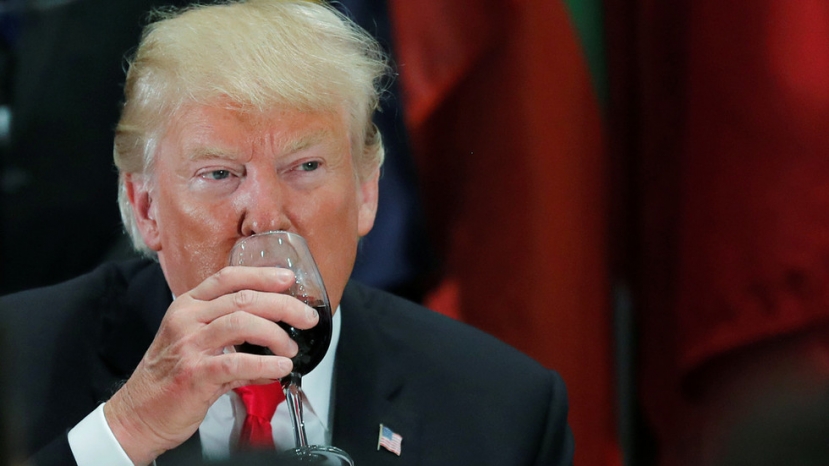‘Trump can damage wine trade with tariffs, but France survived same for opposing war in Iraq’
27.07.2019 18:23
 ‘Trump can damage wine trade with tariffs, but France survived same for opposing war in Iraq’
‘Trump can damage wine trade with tariffs, but France survived same for opposing war in Iraq’
The threat to impose tariffs on the French wines was voiced by Donald Trump on Friday through Twitter, his social media platform of choice. The president, who has long claimed to be a teetotaler, insisted that the US wine is “better,” stating that tariffs on French drinks might be an option to retaliate for Paris’ plan to impose a new three percent tax on large tech firms that get their revenues from ‘digital activities.’
The new taxation, signed into law earlier this week, is set to take effect in 2020 and will certainly affect US-based tech giants, such as Amazon or Google – as well as any other major companies from around the globe. While the law is basically an attempt to levy a “normal corporate tax on their activities,” Trump evidently decided to paint it in anti-US colors, France-based political analyst Nikola Mirkovic told RT, suggesting that the US president might be seeking for yet another leverage in the ongoing trade disputes.
“Donald Trump decided to get himself into the arena, saying that he’s seeing this as an attack on the American companies, which is not the case. I think he’s either defending them, or he wants to bargain something in this deal,” Mirkovic said.
The decision to pick wine as his target appears to be a well thought-out one, as it both represents France as a nation and constitute a sizeable part of its exports. Such a below-the-belt move also shows how the relations between Trump and his French counterpart Emmanuel Macron have deteriorated over the past months, Mirkovic explained – spiraling from a ‘bromance’ into the ongoing name-calling, as Macron has shown attempts to lead Europe and conduct an independent policy.
“France and wine are synonymous. By speaking about the French wine, of course Donald Trump knows exactly he’s targeting a sensitive activity in France. Also, the US is a huge importer of French wine, it can really damage French wine exporters,” Mirkovic said.
The move to pick France’s wine to funnel the US discontent with its policies is not new actually, Mirkovic said, as the same calls for boycott of the drink were actively voiced by US officials during the Iraq war, when Paris refused to participate in the US-led invention. Back then, however, it was not very successful, as French winemakers simply diverted their goods from the US to other markets.
“We know that when France refused to participate in the Iraq bombing, in the Iraq activities, there were [restrictions] on French wine. But France looked for new markets and the French wine activity is still prospering and doing well today. So, it will hurt on the short term, but probably not in mid-long term,” Mirkovic said.
The anti-French sentiment during the Iraq war – against just a non-complying ally – actually resembled the anti-German feeling in the US society during the two World Wars. The anti-French drive resulted in a bizarre, yet unsuccessful, attempt to rebrand French fries as ‘Freedom fries,’ copying the WWI-era moves to rename German measles as ‘liberty measles’ and dachshunds as ‘liberty hounds.’ If current US behavior continues to follow that century-old, well trusted pattern, French bulldogs might become ‘liberty’ ones as well.
